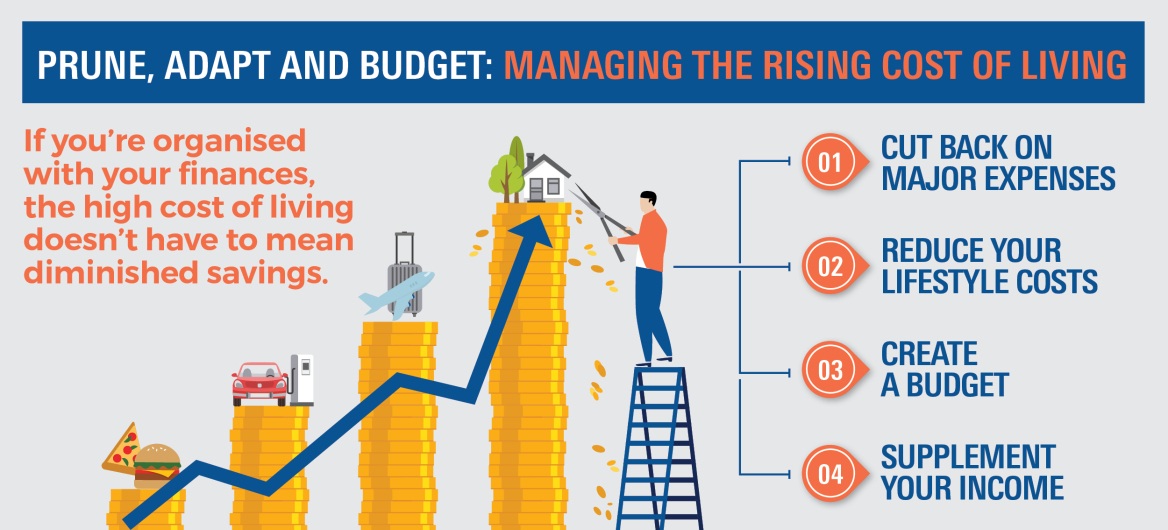With the rising cost of living, here are 4 tips to help you manage
1) Cutting back on (Major) Expenses
Major expenses can range from bills to home loans or car repayments. Basically, anything that takes a large part of your weekly income. With your major expenses, it is a good idea to review each, and look for ways to reduce them. Take home loans for example, you might not have reviewed your rates and products in a couple of years, and better priced alternatives might be available. Speaking to someone who works in each field can help you to find a more competitive product that might be able to reduce your expenses.
2) Reduce Lifestyle Costs
You’ve probably heard it before, but cutting back on little things like takeout coffees makes a big difference in the long run. A $5 coffee three times a week for a year makes $780. It doesn’t have to be just the big bills and expenses, although of course if you can cut back on that it helps, but taking the time to cut out the consistent little expenses can work to reduce your lifestyle costs.
Another thing to be mindful of is subscriptions. Whether it be Netflix, magazines, music streaming or other subscriptions, taking care to cancel those that are no longer used can save hundreds a year. If you stop using a subscription service it’s easy to forget about the $12 a month, which adds up quickly!
3) Create a Budget
Once again, it might be a little cliche but it’s still sound advice. There are many ways to do this, one being to start with your monthly income. From there subtract your monthly expenses one by one, and after all the expenses are subtracted, what’s left can be used in a number of ways. It may be invested, spent discretionally or however else. The main takeaway when budgeting is to have less expenses than income. It sounds simple, yes, but it’s quite tough to do with things like credit cards being so readily available.
4) Supplement your Income
This can be tough to do at the start. It might be a side hustle or through investing your excess income. If you have a budget and stick to it, then try to bring in supplemental income, however small. The extra income will help create added stability and less stress when dealing with unforeseen expenses and other rises in the cost of living.
This is all general advice, and before implementing any, you should consult a financial professional and attain advice tailored to your needs. If you’re looking for further advice and tips, get in touch with us as Addept Chartered Accountants + Advisors now!

